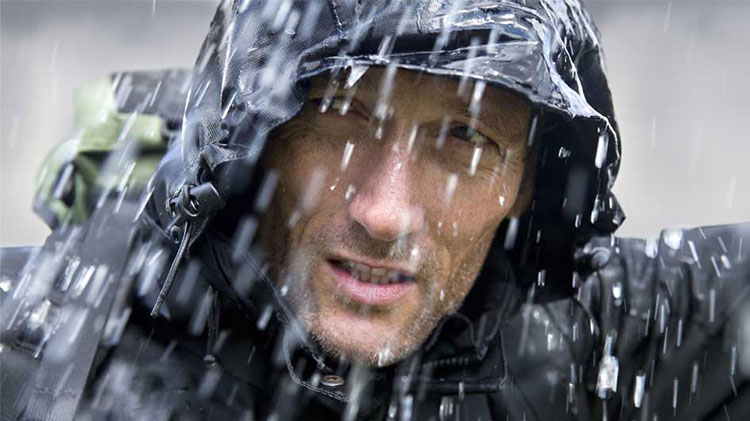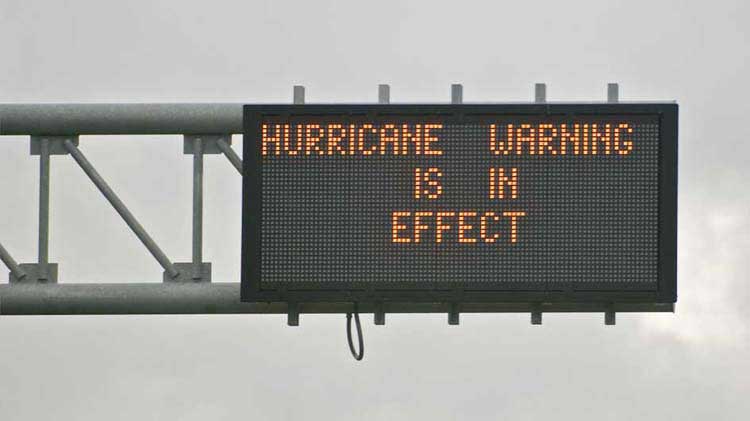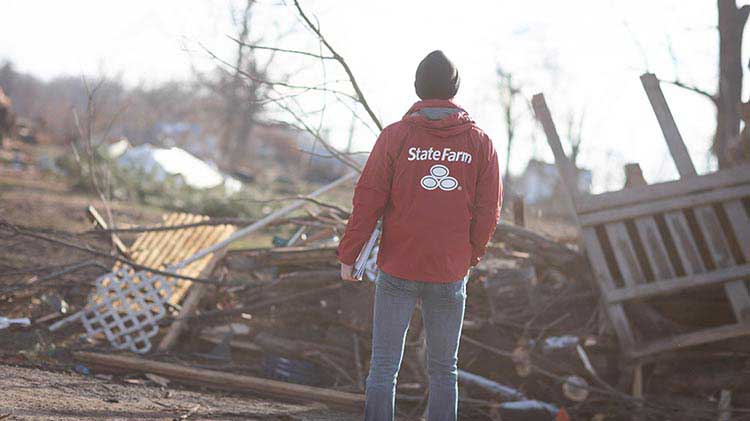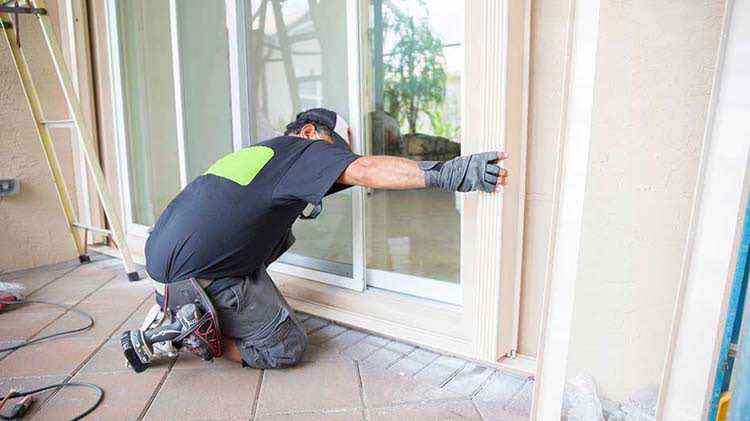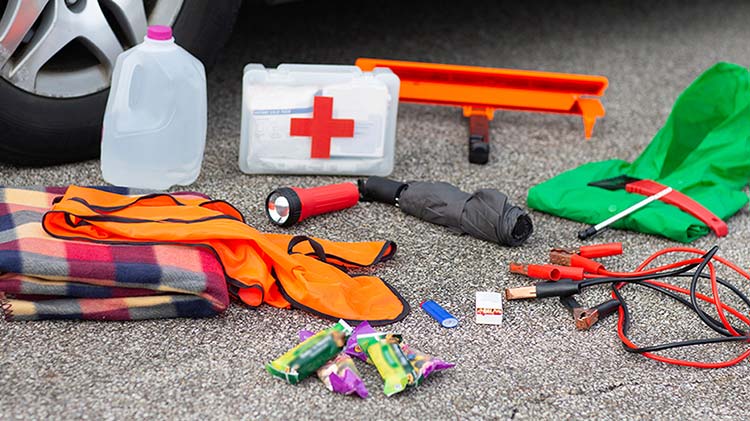Tips for surviving severe weather
Check out these preparation tips for before a storm hits and then what to do after the severe weather has passed.
Anyone who's ever survived a severe storm or hurricane knows that the damage to home and property can be overwhelming, both emotionally and financially. The total estimated property damage attributed to Hurricane Katrina in 2005 hit $170 billion, and property damage attributed to Hurricane Sandy in 2012 hit almost $75 billion. The annual hurricane season traditionally runs from June 1 to November 30, but a severe storm can appear suddenly at any time of the year.
What can you do to be safer during a storm? If you have advance notice that a powerful storm or hurricane is headed your way, here are some tips to help minimize damage to your property and increase your comfort level in the aftermath.
Being prepared for storms
- Organize your important papers and store them offsite, in a bank safe-deposit box or some other secure location. Your mortgage, home and auto insurance policies, birth certificates, passports and other important papers should be in a safe, dry location that you can access even if your home is damaged. Store other papers and keepsakes in plastic, sealable bags on a high shelf to avoid flood damage.
- Create a home inventory of your possessions to expedite insurance claims after the storm and keep it with your important papers offsite. It's much easier to file a claim with an existing inventory rather than trying to create one during the stressful post-storm period.
- Put together an emergency kit. The type of emergency kit needed will depend on where you live and the type of emergencies you may encounter. These items can come in handy if you have to leave your home and temporarily move into a public shelter.
- Create an easily accessible emergency fund, if possible, to streamline your post-storm recovery.
Preparing before a tornado, hurricane or wind event
- Board up windows and glass doors with shutters or plywood to minimize damage from broken glass, in case of high winds.
- Move your car into the garage or some other place where it will be sheltered. If you don't have a garage, move it to higher ground, in case of flooding. Don't forget to prepare your RV if a hurricane is headed your way.
- Bring outdoor furniture and potted plants inside. Anything that can be picked up by the wind and subsequently blown against your home should be secured ahead of time.
- Store your gas grill safely indoors and shut off the propane tank.
- Turn off the circuit breaker to your outdoor pool and remove the motor to prevent damage.
- Prune branches that might break off during the storm and either hurt someone or cause damage to your home or vehicle.
- Prepare your boat by tying down anything that can't be removed such as tillers, wheels and booms. Use at least two anchors to anchor the boat down if the boat stays in the water.
- Rent or purchase an emergency generator, if feasible. A powerful storm can knock out power to your home for days, even weeks. With a generator, you can continue running your refrigerator and keep some lights on.
After the storm passes
After severe thunderstorms, windstorms and derechos
- Check your vehicle for flood damage by noting the depth of the floodwaters in relation to your car. Starting a flooded car can cause more damage if there is water in the engine.
- Avoid driving if possible. If you have to travel, turn around if the road is flooded or blocked by debris.
- Stay away from downed power lines. Anything touching the power line can carry a charge. Report the downed line and avoid the area.
- Clean up or rope off dangerous areas. Cover hail- or wind-damaged windows with tarps and plywood until an inspector can assess the damage.
After a tornado
Tornados can be traumatizing. So when one hits, it's best to try to stay as calm as possible and be prepared for after the tornado.
- Wear appropriate clothing. Sturdy, closed-toe shoes or boots, long sleeves and gloves are best for inspecting damage and handling debris.
- Avoid using candles or torches to inspect damage. Sparks from an open flame could ignite a fire or cause a gas-related explosion in a damaged building.
- Shut off the power if you smell something burning, see frayed or sparking wires or suspect a gas leak. Turn off the main circuit breaker and the natural gas and propane tanks.
- Use caution around debris. Sharp objects, broken glass or exposed nails may cause injuries that could lead to infection.
After a hurricane
No matter how much you prepare for a hurricane, there will be damage. Here are some steps to help you as you begin the cleanup.
- Be cautious around electronics. Do not turn on wet appliances. If appliances are plugged in, turn off the power at the circuit breaker and have an electrician inspect appliances before you use them again.
- Throw away spoiled food. Toss perishables as well as any food that has come in contact with flood or storm water.
- Avoid tap water. Public water may be contaminated after a severe storm. Use bottled water for drinking, washing hands and dishes, brushing teeth and making ice.
After a winter storm or ice
Winter storms can last for days. They can bring cold winds, freezing rain, sleet and lots of snow.
- Don't overexert yourself if you are out shoveling snow. Heart attacks are all too frequent during this activity.
- Stay home. It's best not to drive until conditions improve and the roads are cleared. Avoid walking outside until you know all the ice has melted. If you do venture outside, look up! Snow and ice falling from a roof can cause serious injuries.
- Check in with neighbors to let them know you're okay or if you need help. And get an update on them at the same time.
- If you're stuck in the house for days, conserve food and water until you can get out and replenish your supplies. And be sure to find out if there is a boil order in your area.
- If you lose power and are using a portable generator, be sure to follow all instructions on how to use one and where to place it.
After flooding
- If your basement is flooded, do not wade through the water until the electricity and gas have been shut off. Contact an electrician if the circuit breaker and gas line are located in the basement — it's best not to attempt to shut them off yourself.
- If your car is caught in the storm, survey for potential damage. Salt water causes more damage than fresh water and both should be dried out as soon as possible. File a claim if there is damage.
